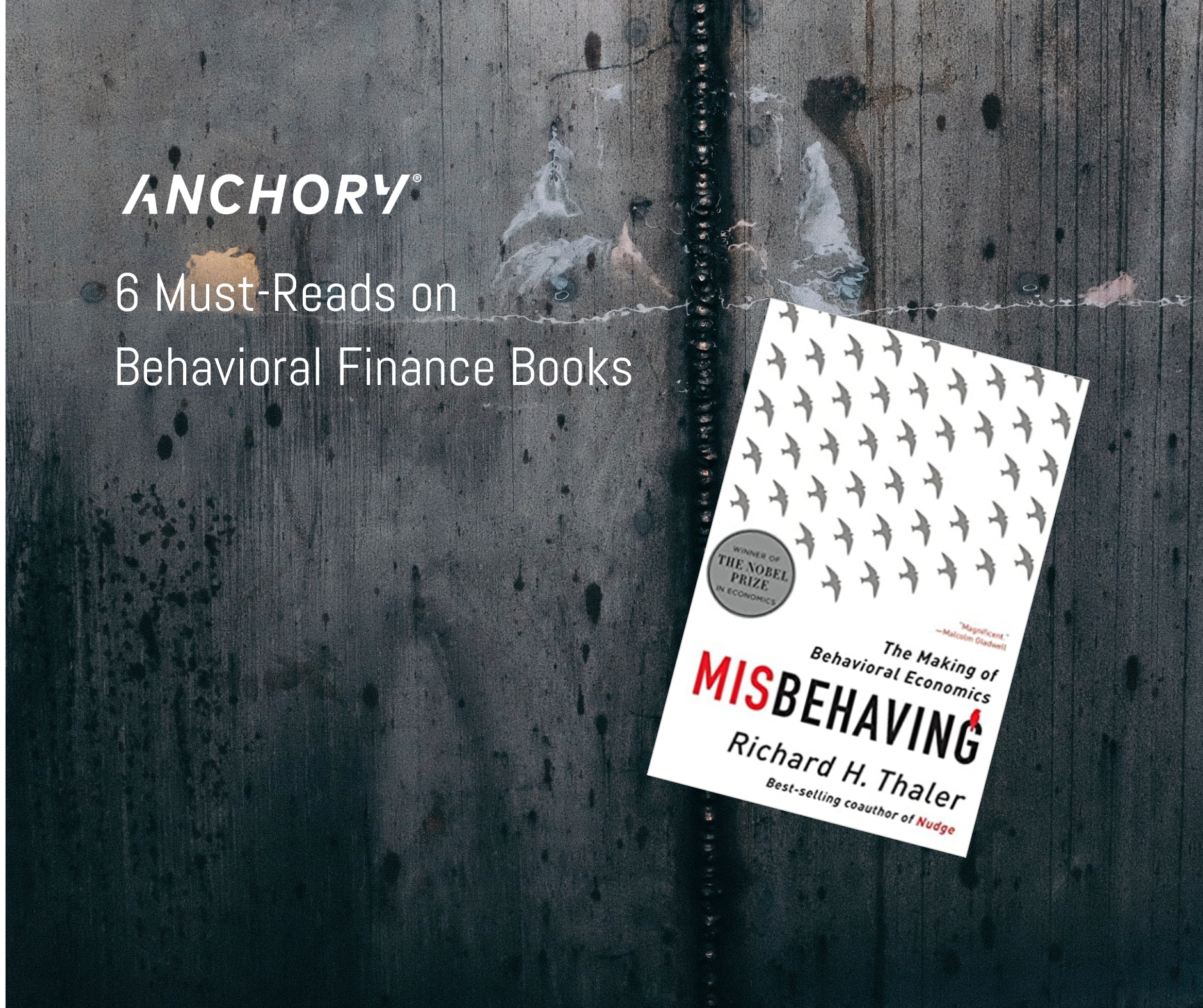"Why You Should Consider Hiring a Certified Financial Planner (CFP®) for Your Financial Needs"
Certified Financial Planners (CFP®) are professional financial advisors who have met certain education, experience, and ethical requirements set by...

For many, it can be a challenge to keep their emotions in check when it comes to investing. Staying steady as you watch the stocks you’ve invested in rising and falling can take some serious self-restraint. Whether you’re experiencing an overconfidence bias when the markets are up, or the disposition effect as you avoid the reality of a loss, it’s important to acknowledge and understand how your emotions are affecting your investment decisions.1 In recent years, there has been an increase in education and coaching surrounding the concept of behavioral finance. Before you begin second-guessing your current stock allocations, consider diving into these behavioral finance must-reads first.
Written by a set of authors who have spent two decades in investment services, this book offers insight into how the investment industry is changing. In doing so, the authors spend some time explaining how the investment industry has looked in the past and the ways in which it is evolving today.
 Book 2: Predictably Irrational: The Hidden Forces That Shape Our Decisions By Dan Ariely
Book 2: Predictably Irrational: The Hidden Forces That Shape Our Decisions By Dan ArielyGoing beyond investments and economic decision-making, Ariely offers an intriguing insider look at the art and science behind why we behave the way we do. Ariely argues in his book that while we believe we are making perfectly rational decisions about things like who we marry or what we spend on groceries, these decisions are often quite the opposite. Yet, with a bit of understanding and self-realization, the reader can find that there is indeed a matter of predictability to these irrational decisions.
 k 3: The Little Book of Behavioral Investing: How Not To Be Your Own Worst Enemy By James Montier
k 3: The Little Book of Behavioral Investing: How Not To Be Your Own Worst Enemy By James MontierThis guided tour of sorts offers a breakdown of the most common behavioral investment pitfalls. It provides do’s and don’ts of making emotionally-charged investment decisions while offering insight on the biggest issues investors face today. Montier offers his advice and strategies for avoiding investing with your emotions and alternative investment tactics to focus on instead.
 Book 4: Thinking, Fast and Slow By Daniel Kahneman
Book 4: Thinking, Fast and Slow By Daniel KahnemanKahneman is a psychologist and Nobel Prize winner in Economics who offers an in-depth look in his book at the way we think and its relation to the decision-making process. He breaks down our thought processes into two systems — fast and intuitive versus slow and deliberate. Through his book, Kahneman offers a deeper look into how these two different systems of thinking shape the decisions we make about investments and beyond.
Another Nobel Prize winner in Economics, Thaler works in his book to change the way economics is approached. In the past, economic theories and ideas were created with a rational decision-maker in mind. But as humans, we naturally make mistakes and unwise decisions. With this different way of thinking, Thaler provides the tools and knowledge he believes readers need to make more informed decisions about their investments in this evolving economic climate.
In this book, the authors work to shift the reader’s focus from the economy at large to your personal economics. In doing so, they offer readers a different way of thinking that uses behavioral finance to their advantage. Because, as the title suggests, the authors help readers establish, define and reach toward their own personal benchmarks.
Trying to separate your personal bias and emotions from your investment decisions can be tough, especially when you don’t even realize you’re decisions are behavior-driven. With the help of these books, you can work toward making better and more informed investment decisions, or even using behavioral finance to your advantage.
https://www.researchgate.net/publication/283488173_Behavioral_Finance_The_Psychology_of_Investing
This content is developed from sources believed to be providing accurate information, and provided by ANCHORY LLC. It may not be used for the purpose of avoiding any federal tax penalties. Please consult legal or tax professionals for specific information regarding your individual situation. The opinions expressed and material provided are for general information, and should not be considered a solicitation for the purchase or sale of any security.
.png)
Certified Financial Planners (CFP®) are professional financial advisors who have met certain education, experience, and ethical requirements set by...
%20(1).png)
As a young professional, it's important to start thinking about your financial goals early on in your career. By setting and working towards...
%20(600%20%C3%97%20350%20px)%20(1).png)
Retirement planning is a critical aspect of ensuring a secure and comfortable future. Finding the right financial planner to help you navigate the...